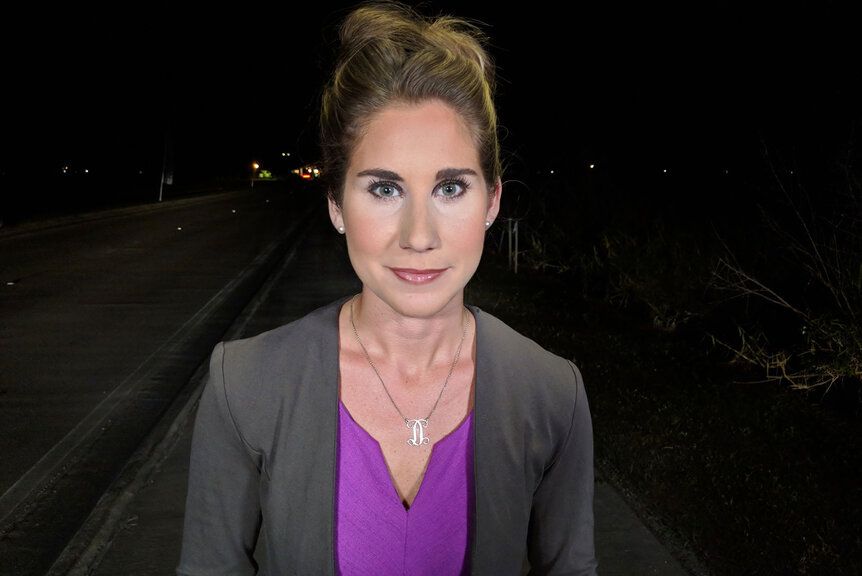Create a free profile to get unlimited access to exclusive videos, breaking news, sweepstakes, and more!
Investigators Chasing Down New Leads In Denise Johnson Case Following 'CounterClock' Podcast
"CounterClock" podcast host Delia D’ambra credits her work for breathing life into the Denise Johnson cold case.

New leads are being investigated in a North Carolina arson murder after a podcast breathed new life into the once-cold case.
The body of Denise Johnson, 33, was discovered with fatal stab wounds inside a burned-down Kill Devil Hills home in 1997. No suspects were ever identified; a blonde woman was the last person to be seen with Johnson. As the years went on, leads dried up and the case turned cold.
Investigative journalist Delia D’ambra, who grew up in the same town, was just 4 when Johnson died. She has spent the last few years devoting herself to investigating the unsolved murder, which marred her hometown. She told Oxygen.com that she was burdened by questions like “What’s going on with this case?” and “How are we in modern times and none of this is being looked at and re-examined and why aren’t people being interviewed again?”
D’ambra, who now works full time as a producer for the audiochuck podcast network, decided to try to find answers. As the host and lead investigator of "CounterClock," she dedicated 2018, 2019 and the first half of 2020 to Johnson's case, researching documents and interviews, and conducting her own. She did it all while working her full-time job.
In the last episode of the 13-episode podcast, released this week, D’ambra revealed that Dare County District Attorney Andrew Womble said that the case is no longer considered cold.
Womble confirmed to Oxygen.com that the case is now considered active.
“We're chasing all the leads that we can,” he said. “There have been some in the last 18 months we are trying to chase down.”
D’ambra credits her podcast for this.
“The district attorney prior to speaking with ‘CounterClock’ actually had no idea about the Denise Johnson case,” she told Oxygen.com. ‘The podcast brought it to their attention and now they have acted in 2020.”
D’ambria said that cold cases are often forgotten by people until they are reminded in a consistent way, explaining podcasts are the perfect medium to refresh the memory of a community. That way, she said, anyone with relevant information may be able to dredge up something vital to the case.
She said that she has gotten the result she intended by researching the case: it’s now being looked at again with fresh and more modern eyes. Now, she hopes the leads will be investigated further.
“I would expect and hope that law enforcement in that area would do the job that it takes to follow the leads like the podcast has, talking to people, vetting people, looking at transcripts done back then, and interviewing people again,” she said. “I would like to see them potentially retesting evidence.There are so many things that are available now that weren’t available in the late '90s that you can look at.”
She pointed to DNA evidence and the original crime scene, which still exists, as possible avenues for that.
“I hope they [investigators] do what they can to the best of their ability so they can get answers for the family, answers for the community and answers for their own unsolved case which has loomed over that department for over two decades,” she said. “My hope is that the DA’s office will ensure that those resources and personnel are allocated to the agencies that will dedicate themselves to it.”
























